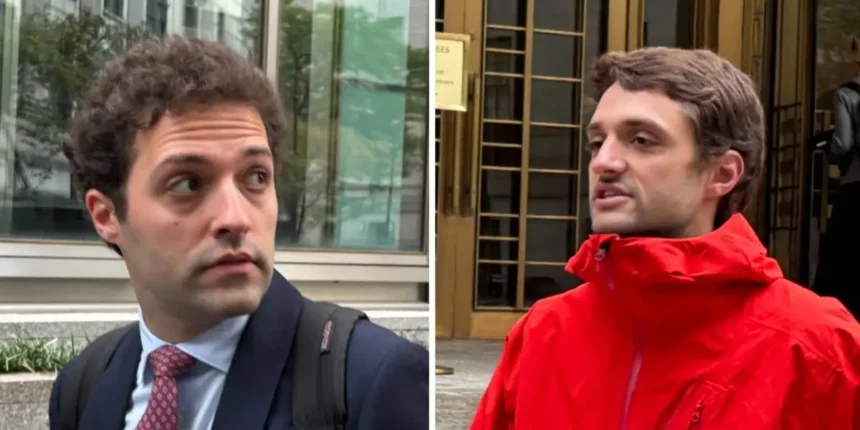In a striking case highlighting the murky waters of cryptocurrency trading, federal prosecutors have accused two brothers, Anton and James Peraire-Bueno, of executing a sophisticated $25 million cryptocurrency heist in just 12 seconds. The incident, described as a “first-of-its-kind” fraud scheme, raises significant legal questions about the evolving landscape of digital finance.
The prosecution contends that the brothers, both graduates of the Massachusetts Institute of Technology with backgrounds in math and computer science, meticulously planned their operation for at least three months. Evidence presented by prosecutors includes search queries from the brothers for topics such as “how to wash crypto” and “top crypto lawyers,” suggesting a calculated approach to laundering their illicit gains.
According to the indictment, the brothers employed “bait transactions” to identify and analyze the trading habits of three victim traders. They then set a trap by creating a bundle of attractive cryptocurrency trades, which they believed would entice the victims’ automated trading bots. This strategy allowed them to exploit a software vulnerability enabling them to access the victims’ transaction information and manipulate it in a classic bait-and-switch maneuver.
Prosecutors assert that the brothers’ execution of the heist was astonishingly brief, completing the theft in mere seconds. They allege that the victims were misled into believing they had purchased valuable assets, only to end up with worthless cryptocurrency. To obscure their identities and the route of their stolen profits, the Peraire-Bueno brothers allegedly utilized a complex network of shell companies and foreign exchanges.
Facing charges of conspiracy, wire fraud, and money laundering, the brothers could each face a maximum sentence of 20 years if convicted. The trial is set to commence in Manhattan federal court, as the cryptocurrency sector faces increasing scrutiny from authorities seeking to enforce new regulations.
The defense team argues vigorously that no fraud was committed. They claim that their clients simply outsmarted the automated trading bots of the victims in a highly competitive crypto trading environment. Defense attorney Patrick Looby emphasized during pre-trial hearings that the Ethereum blockchain lacks a central authority or regulatory framework, thus questioning the applicability of traditional fraud statutes in this context.
Looby also posited that since there was no direct communication between the Peraire-Bueno brothers and the victims, the alleged conduct does not meet the legal definition of fraud. Furthermore, he asserted that the victims engaged in risky trading strategies and lost their investments without any theft or interaction with the defendants.
In a motion to dismiss the indictment, defense attorneys argued that no prior case had applied similar statutes to such transactions, asserting that the Peraire-Bueno brothers had no reason to believe their actions could be deemed unlawful.
As jury selection is slated for Tuesday, the trial is anticipated to delve deeply into the unfolding complexities of cryptocurrency regulation and the legal implications of trading practices in this rapidly evolving market. The proceedings could last until the first week of November, marking a significant moment in the judicial approach to digital currency crime.






